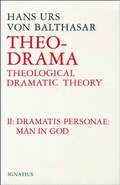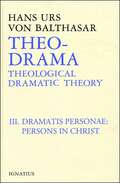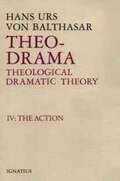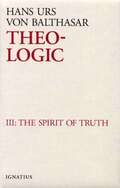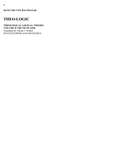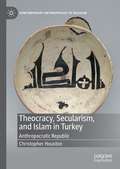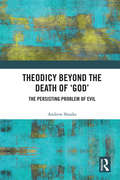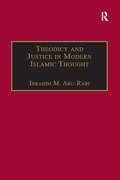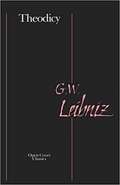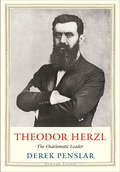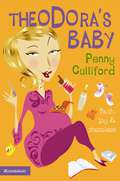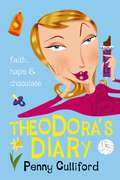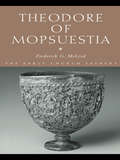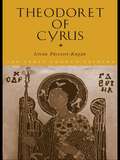- Table View
- List View
Thendral: Vol 12, Issue 05, April 2012
by MadhurabharathiInterview with Tamil Scholar Dr. Parveen Sultana, Recipes of Babycorn Snacks and Babycorn Bajji, a Biography of doyen of Carnatic Music, Veenai Dhanammal, a special feature on the Houston Conference of Tamilnadu Trust, a religious article on the Akilandeswari-Jambukeswarar tample-a 'Pancha Bhootha Sthalam' at Tiruvanakkaval in Tamilnadu, Part 11 of short novel 'Sila Maatrangal", Two short stories "Prayachitham" & "Penn Kulathin Vetriadi", an article on 'sleep apnea' on Nalam Vaazha, a feature introducing Achiever I-mart Anu, poems, a write up on historical novelist Diwakar with a presentation of some excerpts from his historical novel 'vamsadhara' are some of the contents of this issue. In the Anbullla Snehitiye column, Chitra Vaitheeswaran counsels a thought provoking advice to a critical question of a reader which is a must read for every elder and young generation of today. Surya Thupparikirar, Ilanthendral, jokes, etc. are usual features.
Thendral: Vol 12, Issue 06, May 2012
by MadhurabharathiThis issue features interview with Vetriselvi Rajamanikkam, Maravanpulavu Ka. Sachithananthan, Recipes of Plantain Bonda and Plantain Pakoda, Biography of great Tamil Scholar Devaneya Pavanar, an article on Sri Kachareeswarar Tample, Chennai, an article on writer R. Ponnammal with one of her best short stories, "Ponni", Two short stories Thengai and Ethu Nyayam, Part 12 of short novel "Sila Matrangal" plus usual features of Thendral Pesukirathu, Anbulla Snehitiye, Ilanthendral, Surya Thupparikirar, Nalam Vazha, etc.
Thendral: Vol 12, Issue 07, June 2012
by MadhurabharathiThis issue features interviews of Asha Natarajan, Founder of Ragamalika Music School at San Francisco and Nanjil Nadan, a novelist and Tamil scholar who won Sahitya Academy Award in 2010; Recipes of Potato Rice (Aloo Bath) and Ponni Rice in the serial “Maya Bazaar”; a Biography of “Avvai”T.K. Shanmugam, a popular Dramatist of yesteryears; an article on Tirupparankundram Murugan Temple; Surgical treatment for Obesity in Health column “Nalam Vaazha”; Four Short Stories “Kurai Onrumillai”, Oru Kadithathin Vilai, Kalyana Album and Iru Kodugal, an Introduction to Book “Thamizhagaththukku Perumai Thantha Vignana Medhai Padma Bhushan Sir K. S. Krishnan; a biography of Tamil Writer Kaa. Si. Venkatramani and one of his short stories, “Pattuvin Kalyanam” plus usual features of Anbulla Snehitiye, Poetry, Thendral Pesukirathu, Surya Thupparikiraar, Ilanthendral, etc.
Thendral: Vol 12, Issue 08, July 2012
by MadhurabharathiThis issue features interviews of Prof. Sreenivasa Varadhan and gavanakar Kalai.Chezhian; Recipes of Jackfruit items in Maya Bazaar, a biography of Thirumanam Selvakesavaraya Mudaliar; an article on Azhagarkoil; a Health article on Migraine in “Nalam Vaazha”; a biography of Tamil novelist and writer Ra.Su.Nallaperumal and one of his short stories, “Kadal Thaandiya Uravugal”; four short stories and a short novel Sila Maatrangal- Part 13 plus usual features of Anbulla Snehitiye, Jokes, Thendral Pesukirathu, Surya Thupparikiraar, etc
Thendral: Vol 12, Issue 09, August 2012
by MadhurabharathiThis issue features interviews of Prof. George Heart and‘Bharathi’ Mani; Two Recipes; Biography of Carnatic Musician Madurai Mani Iyer; a religious article on “Annai Abirami”; Three Short Stories; Kavithai Pandal (Poem); Biography of writer Hephzibah Jesudasan with an abstract of her novel plus usual features of Thendral Pesukirathu, Anbulla Snehitiye, Ilanthendral, Nalam Vaazha, Surya Thupparikiraar, Saadhanaiaalar, etc.
Thendral: Vol 13, Issue 1, December 2012
by MadhurabharathiThis issue features interview with Dr. Azhagappa Azhagappan and V.K.T. Balan (Part II); Biography of multifaceted and much acclaimed personality Veenai S. Balachandar; an article on Tiruchendur Murugan; three recipes on Mayabazaar; five short stories; Part IV of travelogue on Kollimalai; an write-up on novelist Pattukkottai Prabhakar presenting one of his short stories :Madhavan Sir”, plus usual features of Anbulla Snehitiye, Nalam Vaazha, Thendral Pesukirathu, Jokes, Surya Thupparikiraar, Ilanthendral, etc.
Thendral: Vol 13, Issue 3, February 2013
by MadhurabharathiThis issue features interview with Writer A. Muthulingam; and Archeologist Dr. Thiyaga. Sathiyamoorthy; Biography of Tamil Scholar Mu. Raghava Iyengar; Two short stories; An article on Writer Vikraman with excerpts from one of his novels; a religious article on Sringery Saradambal; a Travelogue on Kollimalai (Concluding part); Three recipes with Sago on the column of Maya Bazaar; The health column Nalam Vaazha speak on Sinusitis; plus other regular features of Anbulla Snehitiye; Jokes, Ilanthendral, Thendral Pesukirathu, Surya Thupparikiraar, etc.
Thendral: Vol 13, Issue 4, March 2013
by MadhurabharathiThis issue features interview with Charu Jayaraman and Mangayarkarasi; Biography of Ms. Lakshmi Krishnamoorthy, daughter of veteran freedom fighter Satyamoorthy; Three short stories; An article on Writer Ms. Vidhya Subramaniam with one of her short stories; a religious article on Lakshmi Narasimhar at Singaperumal Koil; a new feature “Kathiravani Kelungal” Three recipes with on the column of Maya Bazaar; The health column Nalam Vaazha speaks on Gout; plus other regular features of Anbulla Snehitiye; Ilanthendral, Jokes, Thendral Pesukirathu, etc.
Thendral: Vol. 13, Issue 11 (October #2013)
by MadhurabharathiThis issue features interview of a young Veena artist, Bharadwaj Raman, the grandson of Veena Legend, Veenai S. Balachandar; two recipes with Quinoa; a biography of Sami Chidambaranar; an article on Nagai Sri Kayaroganeswarar-Neelayathakshi; an article on novelist Ka.Sri.Sri. and excerpts from the novel Krouncha Vadham ; four short stories, plus usual features of Anbulla Snehitiye, Kathiravanai Kelungal, Ilanthendral, Thendral Pesukirathu, Poetry, etc.
Thendral: Vol. 14, Issue 01, December 2013
by MadhurabharathiInterviews with Poet Ugabharathi, and Veluraman; Biography of Violin maestro Mysore Chowdiah; Two recipes on Maya Bazaar: Milagu Kuzhambu and Paruppu Thuvaiyal; a health article on Cataract; a Poem; an article on Sikkal Singaravelar Tample; a write-up on novelist Ponneelan with excerpts from his novel ‘Thedal’; two short stories, are the highlights of this issue. This issue also contains usual features such as: Thendral Pesukirathu, Anbulla Snehitiye, Kathiravanai Kelungal, Ilanthendral, etc.
Thendral: Vol. 14, Issue 08, July 2014
by MadhurabharathiThis issue features an interviews with Professor Arogyasamy Palraj and Bombay kannan, few short stories , an article on Pioneer P.T.Srinivasa Iyengar,a couple of mouth watering recipes, Samayam featuring Marudamalai Murugan temple, along with usual features like Thendral Pesukirathu , Kathiravanai Kelungal, Nalam Vaazha, Kavithai Pandhal and important events of last month.
Theo-Drama: Dramatis Personae (Theological Dramatic Theory #2)
by Hans Urs Von BalthasarThe first volume of this series surveyed the great world dramatists to gather concepts and ideas to apply to the real stage, which is the universe God has made and centered into himself as an actor. <p><p>This volume describes the actors, the dramatis personae. This is his theological anthropology concerning man, his freedom and destiny in the light of biblical revelation. Von Balthasar is concerned here with the dramatic character of existence as a whole, approaching the topic through a consideration of the various conditions and situations of mankind as a drama that involves both the Creator and his creatures.
Theo-Drama: Dramatis Personae—Persons in Christ (Theological Dramatic Theory #3)
by Graham Harrison Hans Urs Von BalthasarThe third volume of Theo-Drama is considered the most central book of Fr. von Balthasar's entire theological project. Structrually it is the middle volume of the middle part of his theological trilogy: Glory of the Lord, Theo-Drama, and Theo-Logic. More significantly, it contains von Balthasar's synthetic treatment of the central mysteries of the Catholic Faith: Christ, Mary, the Church, man and the Trinity. <p><p>The various elements of von Balthasar's theological reflection converge here, and here as nowhere else one can find the systematic elaboration of his Christology, Mariology, ecclesiology, anthropology and trinitarian doctrine. It is both a one-volume compendium of this theology and a key to his trilogy and other writings.
Theo-Drama: The Action (Theological Dramatic Theory #4)
by Hans Urs Von BalthasarHaving presented his christology and mariology under the sign of the "Dramatis Personae" in volume three of Theo-Drama, von Balthasar now turns to the action of the divine drama itself. Here we find his soteriology, where time, freedom, history, power, sin, conflict are seen in the light of the Cross, the culmination of the action and passion of God and man. <p><p> As Balthasar expresses it in the conclusion to his preface: here "we discern the unity of 'glory' and the 'dramatic'. God's glory, as it appears in the world--supremely in Christ--is not something static that could be observed by a neutral investigator. It manifests itself only through the personal involvement whereby God himself comes forth to do battle and is both victor and vanquished. If this glory is to come within our range at all, an analogous initiative is called for on our part. Revelation is a battlefield. Those who do battle on it can only be believers and theologians, provided they have equipped themselves with the whole armor of God (Eph 6:11)."
Theo-Logic: The Spirit of Truth (Theological Logical Theory #3)
by Hans Urs von BalthasarTheo-Logic is the third and crowning part of the great trilogy of the masterwork of theologian Hans Urs von Balthasar, following his first two parts, The Glory of the Lord and Theo-Drama. This is the third volume of Theo-Logic. <p><p> Theo-Logic is a variation of theology, it being about not so much what man says about God, but what God speaks about himself. Balthasar does not address the truth about God until he first reflects on the beauty of God (The Glory of the Lord). Then he follows with his reflections on the great drama of our salvation and the goodness and mercy of the God who saves us (Theo-Drama). <p><p>Now, in this work, he is ready to reflect on the truth that God reveals about himself, which is not something abstract or theoretical, but rather the concrete and mysterious richness of God's being as a personal and loving God.
Theo-Logic: The Truth of God (Theological Logical Theory #2)
by Hans Urs von BalthasarTheo-Logic is a variation of theology, it being about not so much what man says about God, but what God speaks about himself. Balthasar does not address the truth about God until he first reflects on the beauty of God (The Glory of the Lord). Then he follows with his reflections on the great drama of our salvation and the goodness and mercy of the God who saves us (Theo-Drama). <p><p>Now, in this work, he is ready to reflect on the truth that God reveals about himself, which is not something abstract or theoretical, but rather the concrete and mysterious richness of God's being as a personal and loving God.
Theocracy, Secularism, and Islam in Turkey: Anthropocratic Republic (Contemporary Anthropology of Religion)
by Christopher HoustonIn this novel and lucid work, Christopher Houston clarifies a particular modern style and practice of politics that he calls anthropocracy. In the name of popular sovereignty, anthropocracies de-legitimize the rule of God(s) even as they re-deploy it to stabilize the rule of the representatives of the people, all the while obfuscating their political conscription of the divine. In distinguishing anthropocracy from varieties of other secular and laicist political arrangements, as well as from theocracy, this book also gives readers a brilliant solution to what it calls the Turkish puzzle, the dilemma over how to best describe and analyze state-religion and state-society relations in the Turkish Republic. This work convincingly undermines two orthodox presumptions about Turkish politics: the claim that Turkish modernity should be considered an example of secularity; and the accusation that the current AKP government should be interpreted as Islamic. On the contrary, it argues that both Kemalism and the AKP continue to institute an anthropocratic Republic.
Theodicy Beyond the Death of 'God': The Persisting Problem of Evil
by Andrew ShanksTrue theodicy is partly a theoretical corrective to evangelistic impatience: discounting the distortions arising from over-eager salesmanship. And partly it is a work of poetic intensification, dedicated to faith’s necessary struggle against resentment. This book contains a systematic survey of the classic theoretical-corrective theodicy tradition initiated, in the early Seventeenth Century, by Jakob Böhme. Two centuries later, Böhme’s lyrical thought is translated into rigorous philosophical terms by Schelling; and is, then, further, set in context by Hegel’s doctrine of providence at work in world history. The old ‘God’ of mere evangelistic impatience is, as Hegel sees things, ‘dead’. And so theodicy is liberated, to play its proper role: illustrated here with particular reference to the book of Job, the post-Holocaust poetry of Nelly Sachs, and the thought of Simone Weil. A boldly polemical study, this book is a bid to re-ignite debate on the whole topic of theodicy. As such, it will be of great interest to scholars in religious studies, theology and philosophy.
Theodicy and Justice in Modern Islamic Thought: The Case of Said Nursi
by IBRAHIM M. ABU-RABI‘This book explores the theology and philosophy of the distinguished modern Muslim scholar and theologian Bediuzzaman Said Nursi [d.1960]. Nursi wrote in both Ottoman Turkish and Arabic and his life and thought reflected the transition of modern Turkey from an empire to a secular republic. The contributors to this volume shed new light on two major dimensions of Nursi's thought: theodicy and justice. Classical Muslim theologians debated these two important issues; however, we must consider the modern debate of these issues in the context of the radical political and social transformations of modern Turkey. Nursi explored these matters as they related to the development of state and society and the crisis of Islam in the modern secular nation-state. Nursi is the founder of a 'faith movement' in contemporary Turkey with millions of followers worldwide. In this book, distinguished scholars in Islamic, Middle Eastern, and Turkish Studies explore Nursi's thought on theodicy and justice in comparison with a number of western philosophers, theologians, and men of letters, such as Dante, Merton, Kant, and Moltman. This book presents an invaluable resource for studies in comparative religion, philosophy, and Islamic and Middle Eastern Studies.
Theodicy: Essays on the Goodness of God, the Freedom of Man, and the Origin of Evil
by Gottfried LeibnizIn order to be truly free, must you act arbitrarily? If an event did not happen, could it have happened? Since there is evil, and God could have made the world without evil, did God fail to pick the best course? Grappling with such simple--yet still intriguing--puzzles, Leibniz was able to present attractively his new theories of the real and the phenomenal, freewill and determinism, and the relation between minds and bodies. <P><P>Theodicy was Leibniz's only book-length work to be published in his lifetime, and for many years the work by which he was known to the world. Fully at home with the latest scientific advances, Leibniz ultimately rejected the new atomistic philosophies of Descartes, Gassendi, and Hobbes, and drew upon the old cosmology of Aristotelian scholasticism. There could be no conflict, he argued between faith and reason, freedom and necessity, natural and divine law. Ingeniously defending his postulate of pre-established harmony, Leibniz made important advances in the precise analysis of concepts.
Theodor Herzl: The Charismatic Leader (Jewish Lives)
by Derek PenslarFrom the prizewinning Jewish Lives series, a masterful new biography of Theodor Herzl by an eminent historian of Zionism The life of Theodor Herzl (1860–1904) was as puzzling as it was brief. How did this cosmopolitan and assimilated European Jew become the leader of the Zionist movement? How could he be both an artist and a statesman, a rationalist and an aesthete, a stern moralist yet possessed of deep, and at times dark, passions? And why did scores of thousands of Jews, many of them from traditional, observant backgrounds, embrace Herzl as their leader? Drawing on a vast body of Herzl’s personal, literary, and political writings, historian Derek Penslar shows that Herzl’s path to Zionism had as much to do with personal crises as it did with antisemitism. Once Herzl devoted himself to Zionism, Penslar shows, he distinguished himself as a consummate leader—possessed of indefatigable energy, organizational ability, and electrifying charisma. Herzl became a screen onto which Jews of his era could project their deepest needs and longings.About Jewish Lives: Jewish Lives is a prizewinning series of interpretative biography designed to explore the many facets of Jewish identity. Individual volumes illuminate the imprint of Jewish figures upon literature, religion, philosophy, politics, cultural and economic life, and the arts and sciences. Subjects are paired with authors to elicit lively, deeply informed books that explore the range and depth of the Jewish experience from antiquity to the present. In 2014, the Jewish Book Council named Jewish Lives the winner of its Jewish Book of the Year Award, the first series ever to receive this award.More praise for Jewish Lives: “Excellent.” – New York times “Exemplary.” – Wall St. Journal “Distinguished.” – New Yorker “Superb.” – The Guardian
Theodora's Baby (Theodora)
by Penny Culliford“I’m not sure I’m cut out for parenthood. It’s not in my plan. All right, I haven’t actually got a plan, but if I had one, this wouldn’t be in it. I don’t even like babies—nasty, small, noisy, smelly things that take over your life. But this is a different baby. This is not just a baby; this is our baby …” Newlywed Theodora discovers a slight oversight she and Kevin made on their honeymoon. Now she’s gained an important new subject for her famous diary—but at such a cost! “Tom opened the oven door and got out the most enormous chocolate pudding and placed it on the table in front of me. ‘Especially for you, dear sister,’ said Ariadne. I swallowed hard a few times then took off for the bathroom. Ariadne looked at Tom and said, ‘I told you so.’” What? Theodora sick (literally) of chocolate? How will she survive without her favorite food group? Answer: with typical irrepressible humour that finds much to laugh at about marital bliss, faith, friendships, and the foibles of pregnancy. But will she be reunited with her lost love? Never fear—Theodora and chocolate can’t be separated forever.
Theodora's Diary (Theodora)
by Penny CullifordSaturday 8th May. Emergency! It is 11:30 p.m. and I am suffering from an incredibly intense chocolate craving that will not leave me in spite of prayer, distraction activities and half a loaf of bread and butter. Got out of bed and searched the flat. No luck. Not even a bourbon biscuit. Not even a cream egg left from Easter. All the shops are closed so no nipping out to replenish supplies. Nothing else for it. I’m reduced to the chocoholic’s equivalent of meths—cooking chocolate. It’s been one of those days for Theodora. Her mother has become the Greek equivalent of Delia Smith, her boyfriend would rather watch 22 men kick a ball around a field than go shopping with her, and chintzy Charity Hubble wants to pray for her. And of course, the crowning insult is her utter lack of chocolate. Join in her daily life with all of its challenges and joys, tears and laughter. “Theodora’s Diary is a hilarious and realistic peek into the life of a sprightly Christian sister living ‘across the pond.’ I found myself laughing out loud and thinking, ‘Yes, life is just like this!’ Penny Culliford is a welcome new voice in inspirational fiction.” --Angela Hunt, author of The Debt.
Theodore of Mopsuestia: Insights From Theodore Of Mopsuestia (The Early Church Fathers)
by Frederick McLeodTheodore, bishop of Mopsuestia, (c.350-428) stands out as the pre-eminent exponent of the School of Antioch’s literal, historical and rational emphases in exegesis and of its staunch defence of Christ’s humanity. At his death, he was hailed as one of the outstanding, prolific biblical theologians of his time. However, after his works and person were later condemned at the Second Council of Constantinople in 553, he is known today primarily as the "Father of Nestorianism." This addition to the Early Church Fathers series provides in one place new extensive translations of Theodore’s major extant works that have not been available in English up unto the present. It also summarizes the secondary literature and discusses at length the fundamental features of his theological thinking, especially regarding his method of exegesis and his functional stress on the union of Christ’s natures as occurring in ‘one common prosopon.’ Frederick G. McLeod presents passages from Theodore’s major works ‘On the Incarnation’ and his ‘Cathechetical Homilies;’ his commentaries on Psalm 8, Adam’s creation, John, Philippians 2, Galatians, Ephesians, and Colossians; and his rejection of the allegorists and Apollinaris, as well as providing all the anathemas of Constantinople II against Theodore’s works and person. This book will be invaluable to any scholar who wishes to read firsthand what this influential and controversial figure has actually written.
Theodoret of Cyrus (The Early Church Fathers)
by Istvan Pasztori KupanThe larger part of Theodoret of Cyrus' existant body of work still remains untranslated, and this lack provides a fragmented representation of his thought and has lead to his misrepresentation by ancient, medieval and some modern scholars. Theodoret of Cyrus presents a fresh collection of texts from all periods of his career, including two complete treatises (On the Trinity and On the Incarnation) as well as representative selections from two others (A Cure of Greek Maladies and A Compendium of Heretical Mythification) so far unpublished in English, with a critical introduction concerning his life, legacy and place in the history of Christian doctrine. This book provides the reader with a more balanced picture of Theodoret's often neglected, depreciated and largely inaccessible theological legacy.

